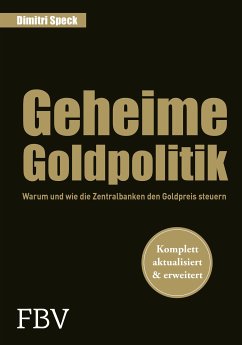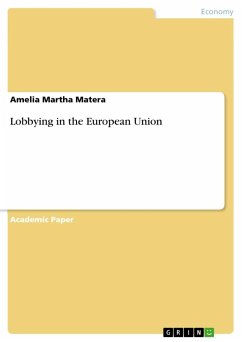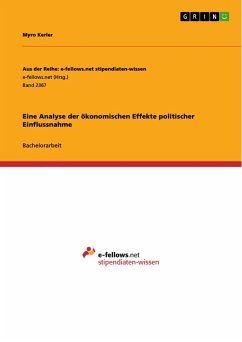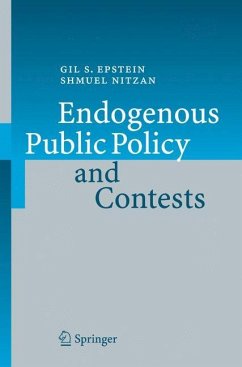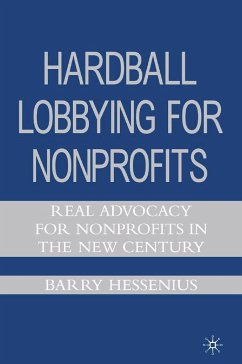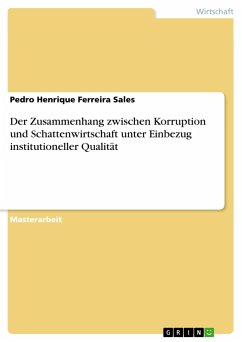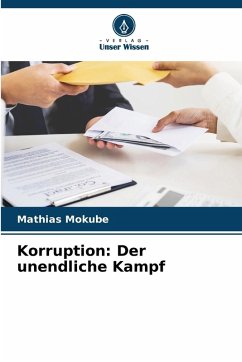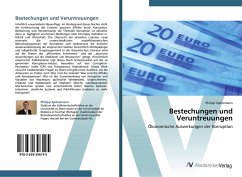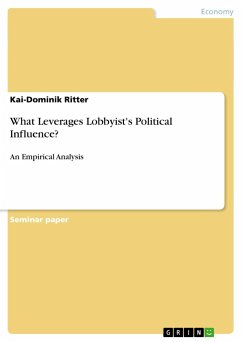
What Leverages Lobbyist's Political Influence?
An Empirical Analysis

PAYBACK Punkte
0 °P sammeln!
Seminar paper from the year 2014 in the subject Economics - Micro-economics, grade: 1,0, University of Heidelberg (Alfred Weber Institut für Wirtschaftswissenschaften), course: Empirical Political Economy, language: English, abstract: Recent political alarm signals make Lobbying as a research field highly relevant. The main objective is to challenge common approaches to model the mechanisms of how lobbyists gain political influence. I will explain what parameters or factors makes lobbyists more successful in their aim to influence political decision makers and what "channels" they use to do s...
Seminar paper from the year 2014 in the subject Economics - Micro-economics, grade: 1,0, University of Heidelberg (Alfred Weber Institut für Wirtschaftswissenschaften), course: Empirical Political Economy, language: English, abstract: Recent political alarm signals make Lobbying as a research field highly relevant. The main objective is to challenge common approaches to model the mechanisms of how lobbyists gain political influence. I will explain what parameters or factors makes lobbyists more successful in their aim to influence political decision makers and what "channels" they use to do so. This issue is closely related to the question of what makes incumbents prone to lobbyists' activities.This paper starts with a short theoretical introduction to rent seeking games, which are the theoretical underpinning of a school of thought which models lobbying as a kind of political investment through well-aimed campaign contributions. I question the conjecture that financial contributions are the main leverage for lobbyists to gain political influence and provide empirical data which support my claim. My analysis focuses on the total amount of money, which is transferred from U.S. interest groups to U.S. politics and could be understood as political investment through campaign financing. To explain my findings in this context, the question is addressed whether political donations do have a measurable effect on political decisions.In the second part of the paper another popular interpretation of a lobbyist's main instrument to influence is discussed: The provision of special knowledge. Empirical analysis shows that the data delivers strong evidence to reject this idea. Instead, I develop a new way of interpreting the meaning of "special knowledge" by asking what advantage a politician has to socialise with lobbyists. By focusing this question in more detail a theoretical model is introduced which shows how important the concerns of special interest groups couldbe for politicians in their aim to become reelected. This model leads to the final result of this paper:What makes lobbyists useful to politicians and therewith powerful is the provision of private information about preferences of possibly pivotal constituents.




